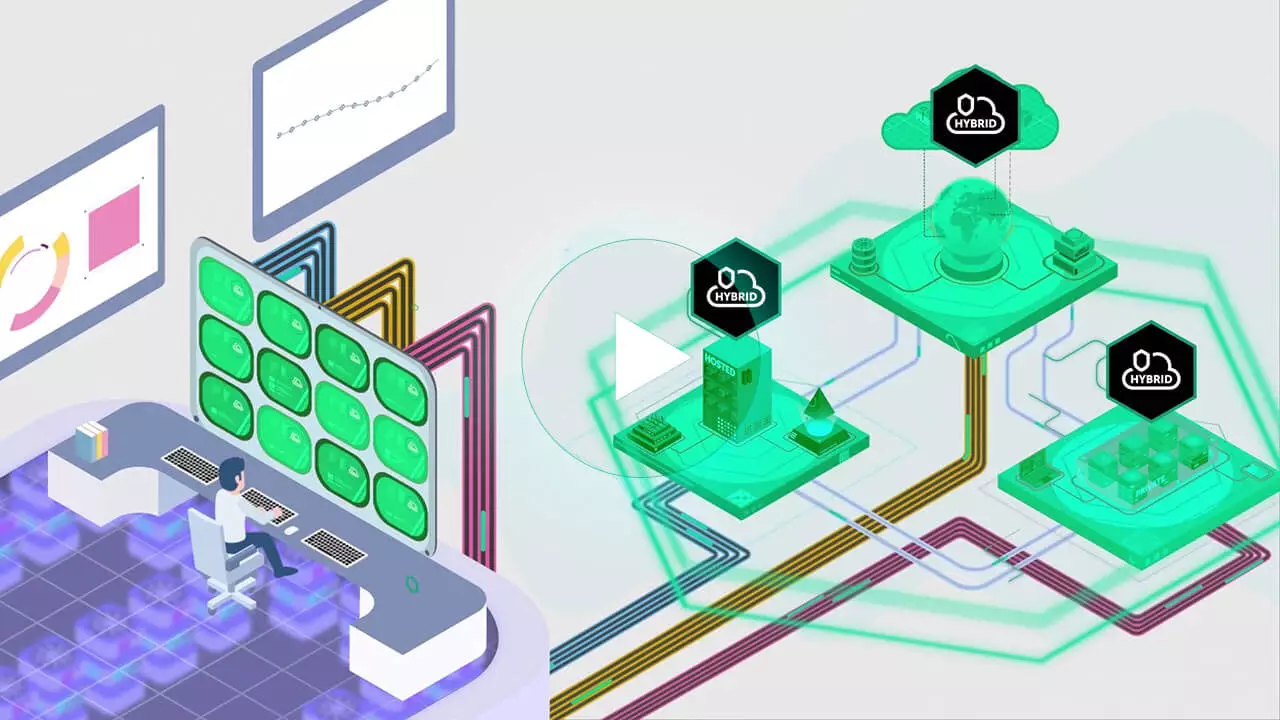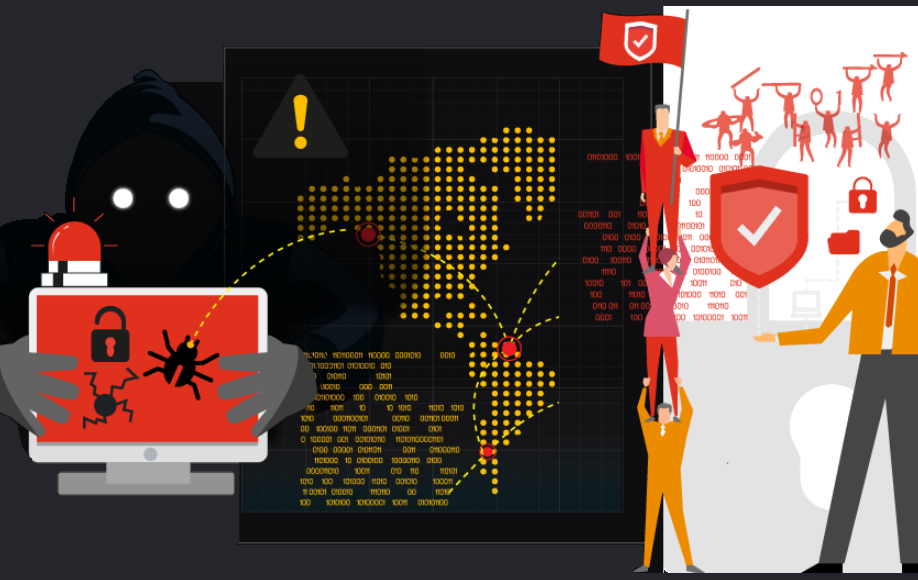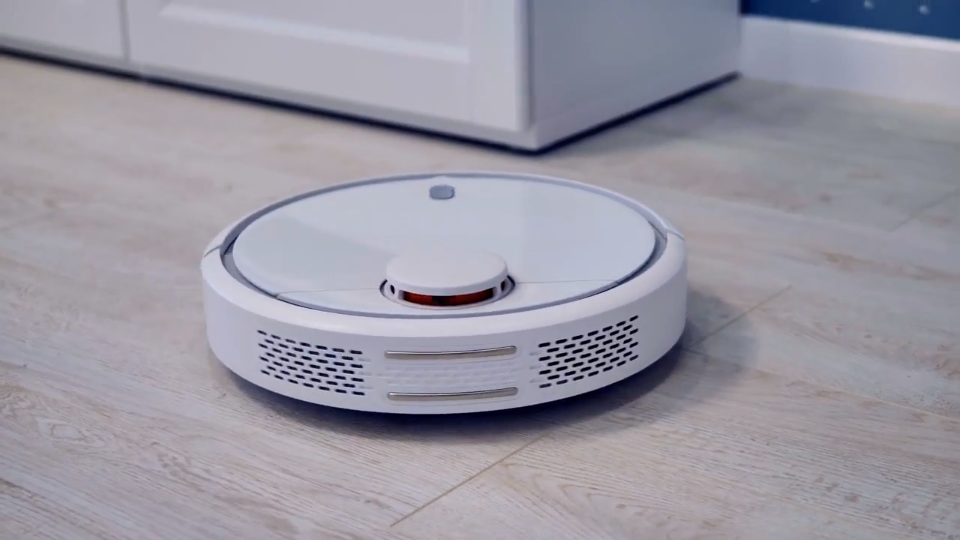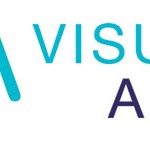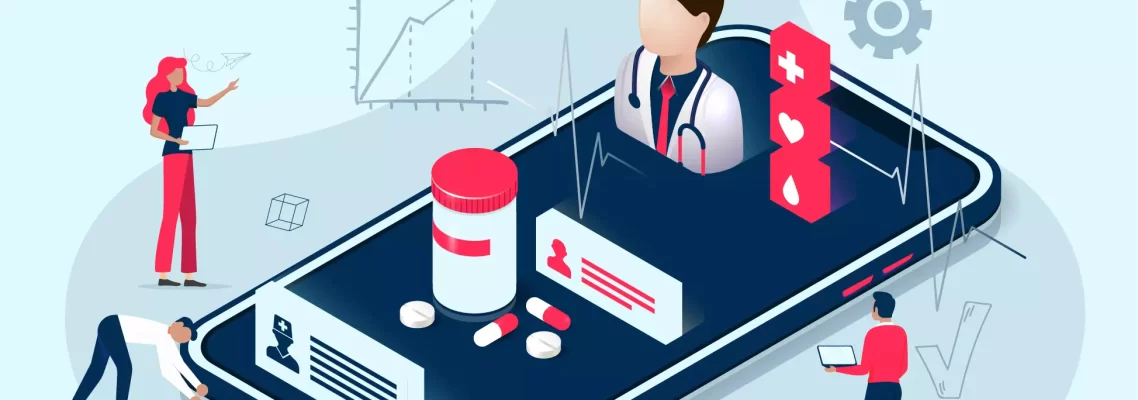
Considerations for HIPAA Compliant Healthcare Software Development
April 15, 2024
The healthcare industry deals with extremely sensitive patient data regularly and has a crucial need to keep this information private and safe. Healthcare software solutions make it very convenient for healthcare providers to store Patient Health Information (PHI), but it can also cause an increase in data breaches.
Hence, providers need to ensure that their healthcare software complies with some government standards and regulations to ensure medical data security. One such standard is the HIPAA compliance.
HIPAA compliance stands for Health Insurance Portability and Accountability Act. The act was passed in 1996 to protect patients and ensure their data security. The act outlines several rules and regulations to protect patient health information in any form.
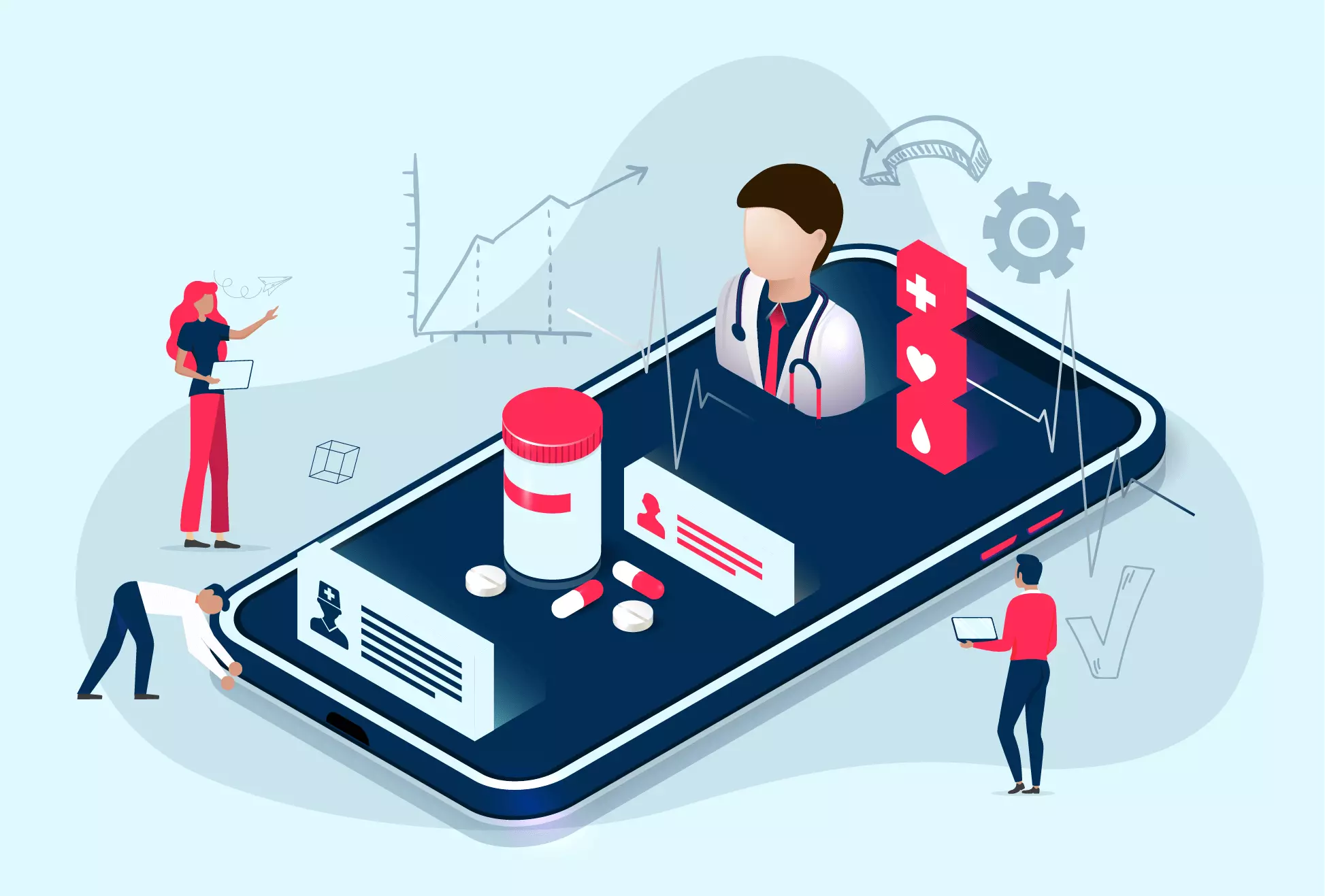
There are five HIPAA rules:
- Privacy Rule
Medical history, diagnoses, treatment records, payment records, and all other healthcare information must be protected and unavailable to third-parties. - Security Rule
It describes PHI security rules, which include limitations and recommendations to identify and rectify PHI security threats, and prevent them in the future. All entities with access to PHI must conduct a regular data breach risk analysis to guarantee PHI protection. - Enforcement Rule
It describes financial penalties of data breaches, depending on the number of healthcare records disclosed and data breaches’ recurrence. - Breach Notification Rule
If the number of data breaches is less than 500 individuals, the healthcare organization must notify all affected individuals within 60 days of discovering the breach. If the number is more than 500, the organization must inform the media. - The Omnibus Rule
The Omnibus rule was issued in January 2013 to modify the rules mentioned above. It adds to the rules mentioned above and expands the obligations to business associates who deal with PHI.
Patient Health Information (PHI) breaches increase the possibility of tampering information, leading to false diagnoses, treatments, and prescriptions. Hence, it can lead to:
- financial losses
- personal damage
- negative impact on patients’ health
All these reasons make it more critical to ensure that healthcare software is HIPAA compliant, especially as some software implementations are rapidly increasing in the healthcare industry. For example, One of the most rapidly growing healthcare software is telemedicine. The U.S. telemedicine market is estimated to grow up to $35 million by 2025. Hence, it is crucial to ensure HIPAA compliant telemedicine software development. But how can a provider ensure HIPAA compliance in his organization? Let’s discuss.
Checklist for HIPAA Compliant Software Development
There are many factors that healthcare providers must consider to ensure that their healthcare software is HIPAA compliant. In this checklist, we are going to list and explain those factors.
- Conduct Regular Audits
Healthcare providers must conduct regular audits to identify possible data breach risks and privacy violations. All HIPAA-compliant software can utilize these audits to analyze a particular medical organization’s compliance level. It should also provide detailed information concerning risks and current errors, including recommendations. - Form a Recovery Plan
A recovery plan will enable healthcare providers to correct mistakes and prevent their recurrence. Hence, such plans must be included in medical software. Also, every healthcare institution must develop its own recovery plan according to its specialization and implemented systems. The software should be able to initiate a particular plan for a specific situation. - Implement Reliable Data Storage
Organizations need to implement reliable data storage with strict security measures to ensure that the possibility of data breaches is minimum. It is also essential to ensure that the security measures meet the HIPAA standards. The fees for HIPAA violations are enormous, and healthcare organizations must ensure that they don’t facilitate any violations in order to avoid that fee. - Review All Contracts with Business Associates
Healthcare providers must go through the breach notification obligations and emergency clauses in all contracts with their business associates to ensure that they don’t leave any loopholes unattended concerning HIPAA compliance. It can also help organizations ensure the Omnibus rule of HIPAA compliance and reduce the risk of data breaches.
Conclusion
HIPAA compliant healthcare software development is a necessity in the healthcare industry today. It is imperative to ensure HIPAA compliant software in all healthcare organizations to minimize the rate of PHI data breaches. Healthcare providers can also hire a HIPAA healthcare software development company to ensure their organization is HIPAA compliant.

Darin is a wonderful person. He is very nice and always willing to help out! He loves his job because it lets him share interesting things with people who want to know about new developments in the world of technology.




